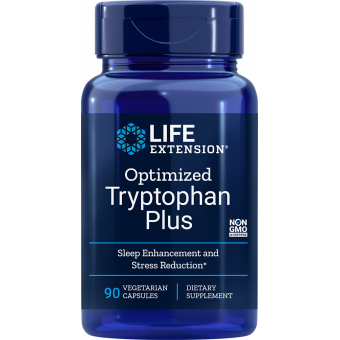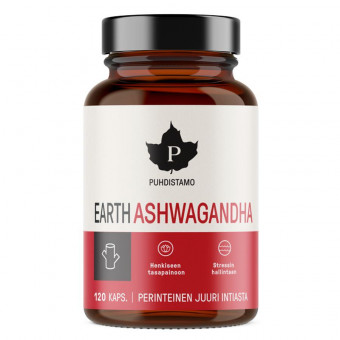Ako zredukovať stres a zlepšiť sústredenie?

Nedávne štúdie zistili, že mnoho ľudí je dlhodobo vystavených nadmernému stresu, čo im zabraňuje v normálnom fungovaní. Následkami stresu môžu byť letargia a zahmlené myslenie. Keď sa stres stane chronickým, môže spôsobiť vážne dlhodobé poškodenie a zvýšiť riziko srdcových chorôb, cukrovky, depresie, úzkosti a problémov so spánkom. Pri hľadaní riešení sa však vedcom podarilo identifikovať rastlinný extrakt, ktorý pomohol zredukovať nepríjemné pocity súvisiace so stresom o 62 až 79%.
Nebezpečenstvo stresu
Chronický stres spôsobuje poškodenie celého tela. Neliečený stres môže zvýšiť riziko:
• ochorenia srdca a mŕtvice,
• obezity,
• cukrovky,
• osteoporózy,
• gastrointestinálnych ťažkostí,
• duševného zdravia vrátane úzkosti, depresie a nespavosti a
• sexuálnej dysfunkcie.
Jedným zo spôsobov, ako telo reaguje na stres, je uvoľňovanie kortizolu, hormónu, ktorý udržuje stresovú reakciu počas chronických období stresu aktivovanú. Výskumy ukazujú, že telu pomáha bojovať s negatívnymi účinkami chronického stresu extrakt z rastliny ashwagandha.
Ashwagandha je indická bylina používaná v tradičnom ajurvédskom systéme medicíny. Predpokladá sa, že Ashwagandha okrem iného pomáha pri relaxácii – je však na tvrdeniach niečo pravdy?
Ashwagandha znižuje kortizol
Ashwagandha sa používa v tradičnej indickej medicíne už viac ako 3000 rokov na podporu zdravia celého tela. Ashwagandha je rastlina pôvodom z Indie, Stredného východu a Afriky, známa aj ako podzemok. V indickom tradičnom ajurvédskom zdravotnom systéme sa používa už tisíce rokov. Historicky sa ashwagandha nachádza aj v perzsko-arabskej a tamilskej medicíne.
Tradične sa používa niekoľko rôznych častí Ashwagandhy, ale väčšina moderných doplnkov stravy sa vyrába z extraktu izolovaného z jej koreňa.
Ashwagandha patrí medzi takzvané adaptogény, o ktorých sa predpokladá, že zvyšujú schopnosť organizmu prispôsobiť sa rôznym vnútorným a vonkajším stresovým faktorom. Pomáha telu vysporiadať sa s fyzickými prejavmi stresu, ako je uvoľňovanie kortizolu, a zároveň obnovuje rovnováhu. Medzi ďalšie produkty klasifikované ako adaptogény patrí kurkumín a chaga.
Chronický stres vedie k vyšším hladinám kortizolu, hormónu, ktorý pomáha regulovať stresovú reakciu. Chronicky zvýšené hladiny kortizolu môžu ovplyvniť celkovú kvalitu života. Kortizol je regulovaný osou hypotalamus - hypofýza - nadobličky (HPA). Normálna aktivácia HPA osi je nevyhnutná pre zdravú reakciu na stres. Chronická stimulácia osi HPA však môže viesť k neprimeranej reakcii na stres. To môže viesť k tomu, že sa do tela uvoľňujú konštantné hladiny kortizolu, čo prispieva k priberaniu, srdcovým chorobám, zhoršenej pamäti a iným zdravotným problémom. Výskum naznačuje, že ashwagandha uvoľňovanie kortizolu inhibuje.
Pôsobivé klinické výsledky
Na potvrdenie týchto účinkov vedci navrhli randomizovanú, placebom kontrolovanú klinickú štúdiu. Chronicky vystresovaných jedincov rozdelili do štyroch skupín. Jedna skupina užívala placebo, zatiaľ čo ďalšie tri užívali extrakt z koreňa a listov ashwagandhy v jednej z troch dávok:
• 125 mg raz denne,
• 125 mg dvakrát denne (spolu 250 mg),
• 250 mg dvakrát denne (celkovo 500 mg).
Bežne používaná škála úzkosti ukázala, že celkový stres sa znížil o 71 % v skupine, ktorej sa podávalo 125 mg extraktu dvakrát denne (celkovo 250 mg) počas 60 dní.
Po 60 dňoch sa v skupine so 125 mg dvakrát denne (celkovo 250 mg) výrazne znížili:
• sérový kortizol,
• sérový C-reaktívny proteín, marker zápalu,
• tepová frekvencia a
• krvný tlak.
Všetci účastníci užívajúci ashwagandhu v porovnaní s placebom hlásili znížené pocity stresu a úzkosti a významné zlepšenia v týchto oblastiach:
• únava,
• strata chuti do jedla,
• pocity „hroziacej skazy“,
• neschopnosť sústrediť sa,
• podráždenosť,
• zábudlivosť a
• nespavosť.
V skupine s dávkou 125 mg dvakrát denne (celkovo 250 mg) sa sérový kortizol znížil o 24,2 %.
Zhrnutie - s čím môže ashwagandha pomôcť?
Zvládanie stresu a duševná rovnováha
Ashwagandha je známa najmä svojimi upokojujúcimi a relaxačnými účinkami.
Bylina má dlhú a tradičnú históriu tohto použitia, ktorú v posledných rokoch podporili moderné vedecké dôkazy. Niekoľko štúdií potvrdilo náznaky benefitov ashwagandhy pri zvládaní stresu a pri znižovaní kortizolu, známeho aj ako stresový hormón.
Lepší spánok
Ashwagandha sa tiež tradične používa na podporu lepšieho spánku – latinský názov pre ashwagandhu, Withania somnifera, znamená „uspávanie“. Podpora spánku je dnes tiež jedným z najpopulárnejších dôvodov na užívanie ashwagandhy, hneď po zvládaní stresu.
Existujú na to aj vedecké dôkazy – metaanalýza v roku 2021 zistila, že ashwagandha mala pozitívny vplyv na spánok. Výhody bylinky boli obzvlášť výrazné u ľudí s diagnostikovanou poruchou spánku.
Výkon, úroveň sily a zotavenie
Okrem podpory duševnej rovnováhy existujú určité dôkazy o výhodách ashwagandhy pri podpore maximálnej kyslíkovej kapacity, úrovne sily a regenerácie, okrem iného. To je dôvod, prečo mnohí športovci zaraďujú túto bylinku do svojho potravinového arzenálu.
V súčasnosti je publikovaných niekoľko individuálnych štúdií, ktoré poskytujú pozitívne údaje o účinkoch byliny na rôzne aspekty fyzického výkonu a kapacity. Na presvedčivejšie zistenie je však potrebný ďalší výskum.
Zlepšenie sústredenia
Malé štúdie zistili, že v porovnaní s placebom ashwagandha výrazne zlepšila reakčné časy účastníkov počas kognitívnych a psychomotorických testov (ktoré merajú schopnosť reagovať na pokyny a vykonať indikovanú činnosť).
Zníženie hladiny cukru a tuku v krvi
Niekoľko malých klinických štúdií zistilo, že ashwagandha pomáha znižovať hladinu glukózy v krvi a triglyceridov (najbežnejší typ tuku v krvi). Jedna štúdia prirovnala účinky ashwagandhy na zníženie hladiny cukru v krvi k účinkom liekov predpísaných na diabetes 2.
Zlepšenie sexuálnej funkcie u žien
Minimálne jedna klinická štúdia dokazuje, že ashwagandha môže byť benefitom pre ženy so sexuálnou dysfunkciou. Podávanie ashwagandhy malo za následok výrazné zlepšenie vzrušenia, lubrikácie, orgazmu a spokojnosti, ako sami uviedli účastníci. Výrazne to zlepšilo aj počet úspešných sexuálnych stretnutí a zlepšilo metriku úzkosti v súvislosti s ich sexuálnym životom a sexualitou.
Zvýšenie plodnosti a hladiny testosterónu u mužov
Ashwagandha má reprodukčné výhody aj pre mužov. Ukázalo sa, že podávanie ashwagandhy neplodným mužom výrazne zlepšuje kvalitu spermií obnovením rovnováhy hladín reprodukčných hormónov. Po jednej štúdii otehotnelo 14 % partneriek mužských pacientov.
Počas inej štúdie súvisiacej so stresom vedci zistili, že bylina zvyšuje hladinu testosterónu u mužských, ale nie ženských účastníkov. Ďalšia štúdia testujúca účinok ashwagandhy na svalovú silu u mužov tiež zaznamenala významné zvýšenie testosterónu.
Zdravie srdca
Najmenej dve štúdie ukázali, že ashwagandha môže zvýšiť hladiny kyslíka prijatého pri fyzickej námahe. Tieto úrovne sa používajú pri meraní kardiorespiračnej vytrvalosti – ako dobre srdce a pľúca dodávajú kyslík do svalov počas fyzickej aktivity.
Napriek tomu výsledky tejto štúdie nemusia platiť univerzálne, pretože bola vykonaná výlučne so zdravými, vyšportovanými dospelými.
Pre koho je ashwagandha vhodná a pre koho nie?
Ashwagandha sa zdá byť vhodná pre tých, ktorí chcú vyskúšať prírodný produkt na podporu relaxácie, zvládania stresu a lepšieho spánku. Neodporúča sa však tehotným ženám a tým, ktoré dojčia.
Ashwagandha tiež priťahuje v posledných rokoch mimoriadny záujem medzi športovcami kvôli jej potenciálnym účinkom na zlepšenie výkonnosti a regenerácie.
Ashwagandha nepreukázala žiadne vedľajšie účinky, hoci u niektorých ľudí môže spôsobiť miernu ospalosť. To môže byť tiež vítaný účinok, ak sa bylinka má použiť špeciálne na relaxáciu a podporu spánku.
Ashwagandhu môžete vyskúšať na sebe a uvidíte, či dosiahnete požadované účinky. Začnite s nižším dávkovaním, napríklad okolo 375-750 mg denne, a sledujte svoj vlastný stav. Ak skončíte s používaním ashwagandhy o niečo pravidelnejšie, možno bude dobré si od nej oddýchnuť – rovnako ako od kofeínu. Vaše telo si tak príliš nezvykne na neustálu vonkajšiu podporu, keď chcete relaxovať.
Záver
Zredukujte stres!
Stres môže mať zničujúci vplyv na emocionálne a fyzické zdravie. Znižuje kvalitu života a zvyšuje riziko chronických ochorení. Môže viesť aj k pocitom mozgovej hmly, ktorá môže zhoršiť kognitívne schopnosti.
V klinickej štúdii extrakt z ashwagandhy znížil stres o 71% a znížil hladinu stresového hormónu kortizolu o 24,2%.
Vyskúšajte Bio extrakt z ashwagandhy od Puhdistamo!. Extrakt je získaný šetrne, prirodzenou cestou pomocou vody. Hodí sa pre vyťažených zamestnancov, podnikateľov, mužov aj ženy, pomáha aj športovcom a aktívnym ľuďom pri fyzickom výkone – adaptuje telo na záťaž a predchádza vyčerpaniu.
Ak máte radi komplexnejšie produkty, potom je tu pre Vás Laveen Rest and Relax s horčíkom a ashwagandhou. K holisticky vyváženej receptúre prispieva aj komplex skupiny vitamínov B, extrakt z mučenky, vitamín C a aminokyselina taurín. Ide o 100 % prírodný doplnok výživy bez balastných aditív. Je vhodný aj pre deti od 5 rokov.
Ako doplnok k ašvagande môžete použiť Optimalizovaný tryptofán plus, ktorý obsahuje aminokyselinu l-tryptofán, ktorá napomáha produkcii hormónu šťastia, serotonínu. Účinok l-tryptofánu je znásobený vitamínom B3 a výťažkom z chmeľu a rozmarínu.
Zdroje:
Life Extension Retail Magazine, september/október. 2023, s. 48-52
https://www.puhdistamo.fi/blogs/uutiset/ashwagandha-selitettyna
https://www.ncbi.nlm.nih.gov/pmc/articles/PMC4609357/
https://pubmed.ncbi.nlm.nih.gov/23796876/
https://pubmed.ncbi.nlm.nih.gov/19789214/
https://pubmed.ncbi.nlm.nih.gov/19789214/
https://www.ncbi.nlm.nih.gov/pmc/articles/PMC4687242/
https://pubmed.ncbi.nlm.nih.gov/21170205/





Zanechajte svoj komentár